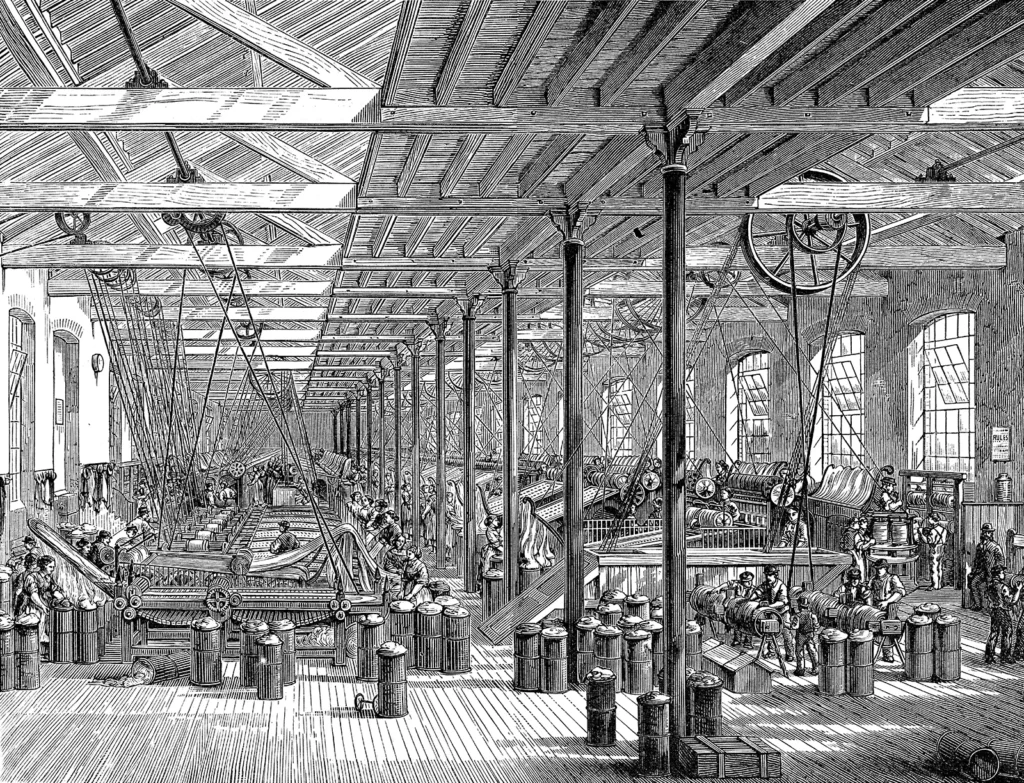When the Industrial Revolution rolled in during the 18th and 19th centuries, it didn’t knock politely.
It crashed the economy’s front door wide open — bringing machines, factories, and a total reimagining of work life.
If you lived during that time, you might have gone to bed as a skilled artisan… and woken up obsolete.
Sound familiar? Because that same wave of transformation is happening again today — but this time, it’s Artificial Intelligence that’s doing the disrupting.
Let’s take a walk down memory lane (and peek into the future) to see just how much history really does repeat itself.
The Industrial Revolution: How Jobs Were Changed Forever
Before the Industrial Revolution, life and work looked very different:
- Agriculture was the main source of employment — about 70–80% of people worked on farms.
- Skilled craftspeople (like blacksmiths, weavers, and shoemakers) created products by hand.
- Domestic service was one of the few jobs available for many women.
Enter steam engines, mechanized looms, and factories… and everything changed.
Key Transformations:
- Handmade ➔ Machine-made: Factories mass-produced goods faster and cheaper than artisans could ever dream.
- Farming ➔ Urban migration: Millions left rural areas for city jobs — fueling the rise of industrial cities.
- New careers emerged: Engineers, machine operators, and railroad workers were suddenly in hot demand.
👉 According to historical records, between 1800 and 1900, the percentage of Americans working in agriculture dropped from about 80% to just 40%.
Fast Forward to Today: The AI Revolution is Déjà Vu
Just like steam power and mechanization revolutionized 1800s life, AI is now doing the same to our workspaces — but faster, and digitally.
Today’s Changes Mirror the Past:
- Manual ➔ Automated: Tasks once handled by people — like customer service, scheduling, and even driving — are increasingly automated.
- Urban ➔ Virtual migration: Workers are leaving traditional offices for fully remote, digital-first lifestyles.
- New careers are booming: AI trainers, machine learning engineers, prompt engineers, and AI ethicists (yes, that’s a job now) are in demand.
📈 A 2023 McKinsey Global Institute report predicts that up to 30% of current work hours could be automated by 2030.
Sound a little bit like the Industrial Revolution’s disruption? That’s because it is.
Lessons From Then — And How to Thrive Now
History offers us a few key lessons:
1. Adaptability Wins
In the Industrial Revolution, those who learned new machinery skills or pivoted into emerging industries thrived.
Today? The same applies. Learning AI tools, upskilling, and staying flexible is your survival kit.
2. Resistance Only Slows You Down
Luddites — the original anti-automation protestors — fought to destroy machines replacing their jobs.
Spoiler: The machines still won.
Today, fighting against AI isn’t the move. Learning how to work alongside it is.
3. New Opportunities Always Emerge
Factory jobs once seemed soulless compared to artisanship. But those factories built middle classes and new professions.
Likewise, while AI is replacing some jobs, it’s also creating entire industries we couldn’t even imagine five years ago.
New “Factories” — Modern Workplaces
Interestingly, today’s equivalents to 19th-century factories are:
- Tech startups instead of textile mills
- Remote teams instead of city assembly lines
- Digital marketplaces instead of brick-and-mortar shops
The difference?
Today’s “factories” are in the cloud — and you can build one with just a laptop and WiFi.
So, What’s the Lesson? Change Is Inevitable — Growth Is Optional
The Industrial Revolution transformed jobs, society, and daily life.
The AI Revolution is doing the exact same — only faster, more globally, and often invisibly.
The real question isn’t “Will AI take my job?”
It’s “How can I ride this wave instead of getting wiped out?”
Because, just like the workers of the 1800s, those who evolve — not those who resist — will shape the next chapter of history.
So lace up your digital boots. The next revolution isn’t coming — it’s already here.

